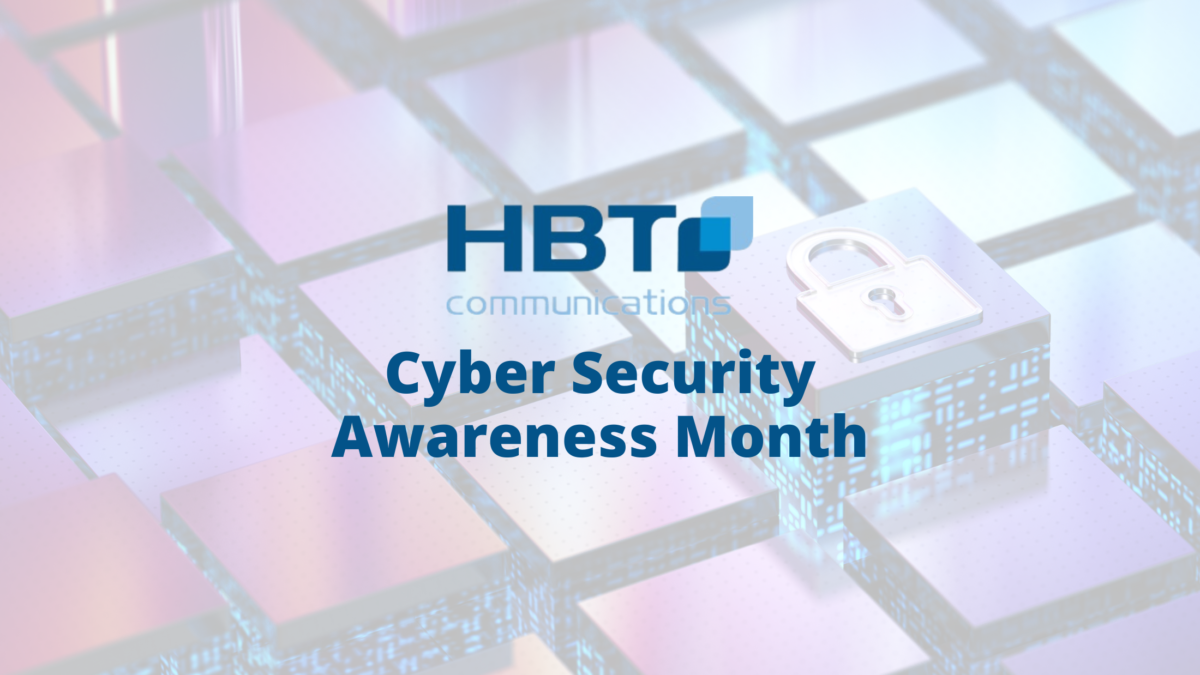- Sales:02476 867 422
- Support:02476 867 401
Cyber Security Awareness Month

6 valuable advantages of upgrading to Microsoft 365 Business Premium
25th September 2024
The 7 key cyber security standards recently updated for education settings
4th November 2024Cybersecurity Awareness month is an annual, month-long campaign to educate both businesses and the public about the threats that can be faced online.

This year, the theme is ‘Secure our World’, a call-to-action for everyone to understand the dangers – protecting themselves and their organisations through education and safe practices. Cyber-attacks can have hugely negative consequences on a business of any size, so it’s a good idea to be aware of the most common forms of online attack and how you can prevent them.
Are you aware of the cyber threats to your business?
With new technology constantly emerging, cyber criminals are getting smarter and more difficult to identify. However, the most common cyber threats can still have devastating impacts on a business. Not sure what to look out for? Here are some important things to keep in mind.
Phishing, smishing and vishing
It may sound like we’ve made these up, but they’re actually all forms of fraud that aim to steal personal identity data and other valuable information. Phishing is used to describe fraud that uses emails containing malicious links. But as technology develops, so do new methods of fraudulent activity. Smishing is malware that comes in the form of a text (SMS) message, and vishing is the telephone equivalent. With potential access to many devices, businesses may be particularly vulnerable to revealing sensitive information in this way.
Malware
Malware is used by cybercriminals to steal data and damage – or even destroy – a computer system. The user is tricked into downloading the software by clicking on unsafe links, apps or email attachments. Common forms of malware include viruses, spyware and ransomware. Malware will often be disguised as something interesting or urgent – such as a viral video or the threat of an unpaid fine.
SQL injection attacks
In an SQL injection attack, a hacker can gain access to your systems and website by inserting malicious code that can change, delete or steal important data. In some cases, they can even gain control of your entire database.
Denial of Service
In a Denial of Service (DoS) attack, a large number of service requests will be sent to the server in order to crash or disable your website. The idea is to prevent legitimate users from accessing the site, keeping it down until a ransom is paid.
Insider threats
Although it’s not nice to think about, it’s important to be aware of threats that can come from within your business too – from employees and visitors to contractors and business partners. Anyone with legitimate access to sensitive information or data can, unfortunately, misuse this privilege. Employees can also be targeted unwittingly by phishing or malware attacks, so on-going training and education is incredibly important.
What could a cyber-attack mean for you?
If the worst should happen and your business became the target of a criminal attack, the impacts could be far-reaching.
They may include:
Loss in productivity and revenue – from financial theft, the stealing of sensitive information, system downtime and service interruptions.
A data breach – a loss of highly sensitive data such as customer information, employee records, internal documents and financial statements.
Ransom demands – criminals demanding payment for the return of services, information or data.
Legal liabilities – lawsuits, fines, sanctions and regulatory investigations can all result from a loss of information in targeted attacks.
Reputational damage – all of the above can ultimately damage the reputation of your business, with a loss of customers, clients and business contracts or partnerships.
Understanding and investing in your cybersecurity can help to mitigate these risks and reduce your chance of any financial, legal or reputational damage.
What can you do to protect your business?
With cyber threats growing ever more sophisticated, it’s wise to consider a robust cyber security solution for your peace of mind.
This should include:
- Anti-virus software
- Firewalls
- Multi-factor authentication
- Email security
- An effective patch management process
- Data encryption protocols
- Prioritising on-going employee training
- Fostering a security-conscious culture
Working together, these security measures will put you in the best position to avoid or respond to a malicious attack.
If you’re not sure where to start, we have dedicated team of experts at HBT Communications that are committed to finding the right solution for you. Our complete security systems include a wide range of security measures, tailored specifically for your business – so please get in touch if you’d like to find out more.




